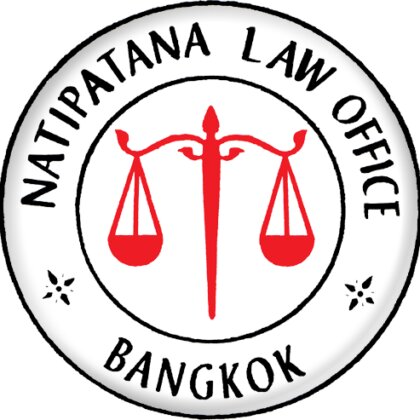Best Merger & Acquisition Lawyers in Phuket
Share your needs with us, get contacted by law firms.
Free. Takes 2 min.
List of the best lawyers in Phuket, Thailand
Legal guides written by SIAM LEGAL INTERNATIONAL:
- Defamation Laws in Thailand: Criminal Charges and Civil Suits
- The State of Thailand’s Long-Term Resident (LTR) Visa Program in 2025
- The Penalties Of Not Filing Your Income Tax Return As A Foreigner In Thailand
Thailand Merger & Acquisition Legal Articles
Browse our 1 legal article about Merger & Acquisition in Thailand written by expert lawyers.
- Mergers and Acquisitions in Thailand: Legal Considerations and Best Practices
- Mergers and acquisitions (M&A) are important techniques for company expansion, consolidation, and diversification. M&A activity in Thailand has increased as a result of a thriving economy, more foreign direct investment, and a favorable regulatory environment. Lawyers working in M&A transactions must grasp the legal concerns and best practices in order... Read more →
About Merger & Acquisition Law in Phuket, Thailand
Merger & Acquisition (M&A) law in Phuket, Thailand, is a critical area of legal practice that focuses on the consolidation of companies or assets. Located in a bustling region known for its tourism and expanding business landscape, Phuket presents unique opportunities and challenges for M&A activities. The legal framework governing M&A in Thailand involves a complex mix of corporate, securities, competition, and contract law, designed to regulate and facilitate the seamless integration or acquisition of businesses. Attorneys specializing in this field work to ensure compliance with local and international standards while navigating the intricacies of cross-border transactions.
Why You May Need a Lawyer
Involvement in M&A activities can be a daunting endeavor, often fraught with financial, legal, and operational complexities. Here are several common situations where legal assistance may be necessary:
- Due Diligence: Lawyers assist in the thorough investigation required to uncover potential liabilities and assess the value of the target company.
- Contract Negotiation: Legal expertise is essential in drafting and negotiating merger or acquisition agreements to safeguard your interests.
- Regulatory Compliance: Lawyers ensure that the transaction complies with local laws, including competition regulations and foreign investment rules.
- Risk Management: Attorneys help identify and mitigate risks associated with the merger or acquisition.
- Cross-border Transactions: In the case of international deals, legal counsel facilitates the navigation of diverse legal systems and practices.
Local Laws Overview
Key aspects of local laws in Phuket, Thailand, pertinent to M&A include:
- Foreign Business Act: Restrictions and conditions are imposed on foreign ownership of Thai companies, influencing the structure of M&A deals.
- Thai Civil and Commercial Code: Governs the corporate structure and transactions, including statutes that dictate company mergers and shareholder rights.
- Competition Act: Ensures that M&A transactions do not impede fair competition within the market.
- Securities and Exchange Act: Covers M&A activities involving publicly listed companies and requires disclosure and transparency.
- Board of Investment Regulations: Offers incentives but also sets eligibility criteria for companies partaking in mergers or acquisitions.
Frequently Asked Questions
What is the typical timeframe for completing a merger or acquisition in Phuket?
The timeframe can vary significantly depending on the complexity of the transaction, ranging from a few months to over a year, influenced by factors like due diligence, negotiations, and regulatory approvals.
Are there restrictions on foreign ownership in mergers and acquisitions?
Yes, under the Foreign Business Act, foreigners face restrictions on owning certain types of businesses, which may require structuring the deal strategically to comply with local laws.
What role does due diligence play in M&A transactions?
Due diligence is crucial for identifying potential risks, liabilities, and the overall value of the target company. It aids informed decision-making and negotiation strategies.
Can a merger or acquisition be conducted entirely under Thai law?
Yes, most mergers or acquisitions of Thai companies will be governed primarily by Thai law. However, international transactions may also involve foreign legal considerations.
How does Thai competition law affect M&A transactions?
Thai competition law aims to prevent monopoly situations; thus, transactions that could significantly reduce competition may be subjected to scrutiny or conditions.
Do I need government approval for my M&A deal in Phuket?
Government approval may be necessary, particularly in sectors of national interest or when foreign entities are involved, as regulated by the Foreign Business Act and other relevant statutes.
What taxes should be considered during a merger or acquisition?
Transaction taxes in Thailand might include corporate income tax, VAT, stamp duty, and, potentially, capital gains tax, which a lawyer can help navigate.
What documents are essential in an M&A transaction?
Essential documents typically include a letter of intent, confidentiality agreements, purchase agreements, due diligence reports, and regulatory filings.
How can potential risks be mitigated in M&A transactions?
Risks can be mitigated through detailed due diligence, drafting robust contracts, securing representations and warranties insurance, and consulting with legal experts.
Is it necessary to involve a financial advisor in addition to a lawyer?
While lawyers handle legal aspects, a financial advisor is recommended for business valuation, financial structuring, and ensuring the deal aligns with strategic economic objectives.
Additional Resources
Here are some resources and organizations that may be helpful for someone seeking legal advice on M&A in Phuket:
- Thailand Board of Investment (BOI): Offers information on incentives and regulations for foreign investments.
- Thai Securities and Exchange Commission (SEC): Provides guidelines and notices relevant to M&A activities.
- Department of Business Development (DBD): Part of the Ministry of Commerce, offering legal information and registration services.
- Phuket Chamber of Commerce: May offer insights and networking opportunities for businesses and investors.
Next Steps
If you need legal assistance with M&A in Phuket, consider taking the following steps:
- Research and select a reputable law firm or attorney with expertise in M&A and a solid understanding of Thai corporate law.
- Prepare a summary of your business objectives and any specific concerns related to the merger or acquisition.
- Schedule consultations with prospective lawyers to discuss your objectives, their approach, and estimates of time and cost.
- Ensure open communication with your chosen legal advisor to understand the nuances of the process and maintain compliance with local regulations.
- Consider engaging additional professionals, such as financial advisors or tax consultants, to support the transaction.
Lawzana helps you find the best lawyers and law firms in Phuket through a curated and pre-screened list of qualified legal professionals. Our platform offers rankings and detailed profiles of attorneys and law firms, allowing you to compare based on practice areas, including Merger & Acquisition, experience, and client feedback.
Each profile includes a description of the firm's areas of practice, client reviews, team members and partners, year of establishment, spoken languages, office locations, contact information, social media presence, and any published articles or resources. Most firms on our platform speak English and are experienced in both local and international legal matters.
Get a quote from top-rated law firms in Phuket, Thailand — quickly, securely, and without unnecessary hassle.
Disclaimer:
The information provided on this page is for general informational purposes only and does not constitute legal advice. While we strive to ensure the accuracy and relevance of the content, legal information may change over time, and interpretations of the law can vary. You should always consult with a qualified legal professional for advice specific to your situation.
We disclaim all liability for actions taken or not taken based on the content of this page. If you believe any information is incorrect or outdated, please contact us, and we will review and update it where appropriate.
















